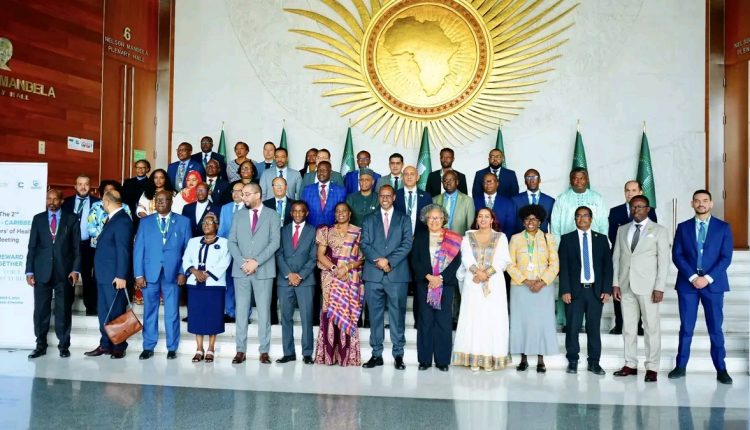CARICOM Secretary-General Emphasizes Shared Challenges, Cooperation Opportunities with Africa
Addis Ababa, September 6, 2025 (FMC) — Secretary-General of the Caribbean Community (CARICOM), Carla Barnett, has highlighted that the shared challenges faced by the Caribbean and Africa open new opportunities for collaboration and unity.
The Second Africa–Caribbean Ministers of Health Meeting is taking place in Addis Ababa with the goal of advancing joint solutions for health system resilience and sustainable health financing.
In her remarks, Barnett stressed that common challenges create a platform for solidarity, pointing to health workforce development, sustainable financing, and collaborative research as areas where cooperation can deliver tangible results. She underlined that the meeting represents an opportunity to accelerate collective action and strengthen health as a foundation of sustainable social and economic development.
According to her, the very convening of this second joint meeting is a signal that Africa and the Caribbean are moving closer together—bound by shared history and united by a vision for the future. Health, she added, has long been a cornerstone of CARICOM’s development agenda under the Caribbean Cooperation in Health framework.
“Our responsibility is not only to exchange ideas, but to agree on concrete actions that can be pursued collectively by all governments and supported by all regional institutions,” Barnett said.
Ethiopia’s Minister of Health, Dr. Mekdes Daba, also addressed the gathering, emphasizing that a unified voice allows Africa and the Caribbean to shape global health governance.
“Health is not just a right, but also a foundation for dignity, resilience, and sustainable development. By igniting our shared aspirations, we can move from fragmented advocacy to collective action,” Dr. Mekdes noted.
She underscored the importance of mobilizing sustainable financing through fair global reforms and stronger domestic investment. Building climate-resilient health systems, ensuring access to essential medicines, and expanding shock-responsive medical services were highlighted as essential priorities.
Dr. Mekdes further stressed that strategic partnerships must go beyond advancing universal health coverage and achieving Sustainable Development Goal 3; they must reclaim the voice of the Global South and assert equity in global health governance.
“This is our moment, not merely to agree on principles, but to act. We must transform solidarity into concrete programs, shared investments, and coordinated positions that shift the balance of global health governance,” she declared.
She also emphasized the need to make health a central pillar of South–South cooperation, ensuring equitable access to financing and meaningful global health representation. Delivering pharmaceutical sovereignty through joint Africa–Caribbean efforts, strengthening local medicine and vaccine production, and boosting capacity against both preventable and non-communicable diseases were identified as critical steps forward.
The meeting is expected to drive joint action on health financing, workforce strengthening, climate resilience, and digital health innovation, advancing Africa–Caribbean cooperation as a model for South–South solidarity.

